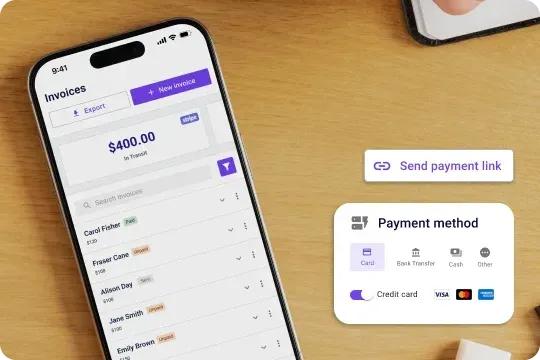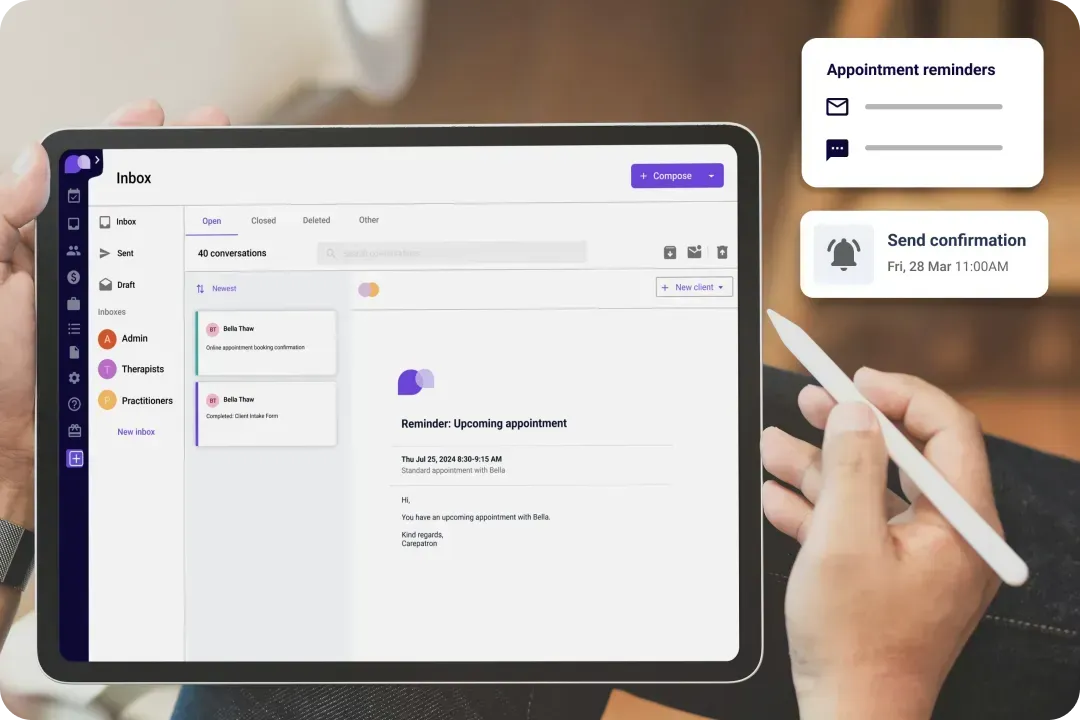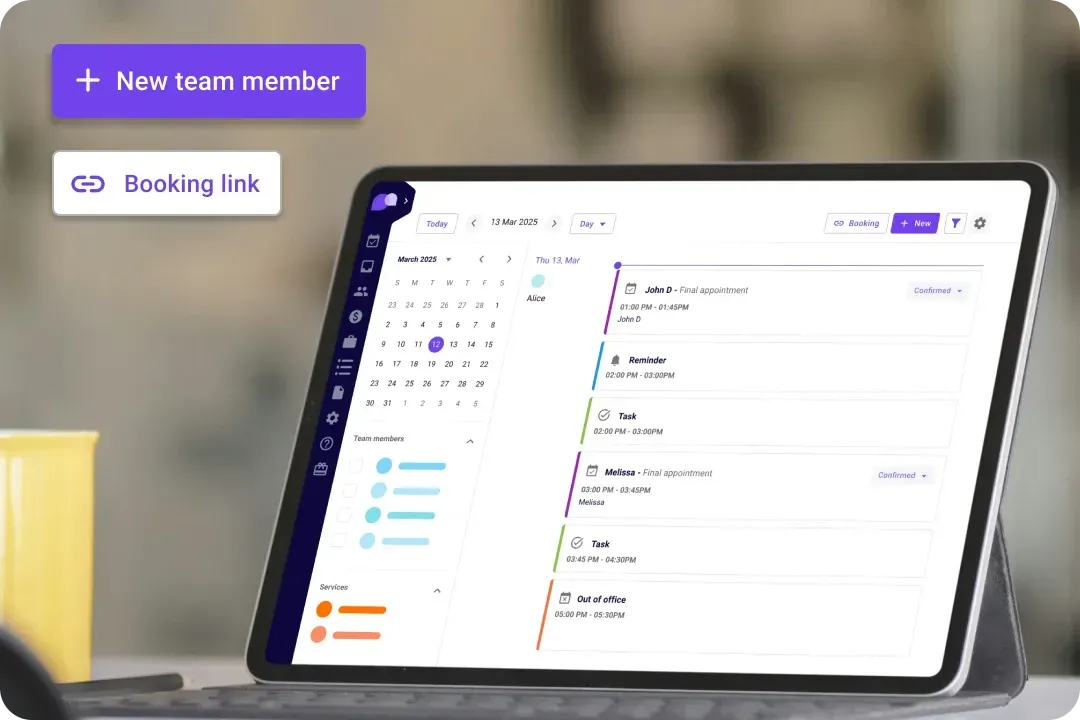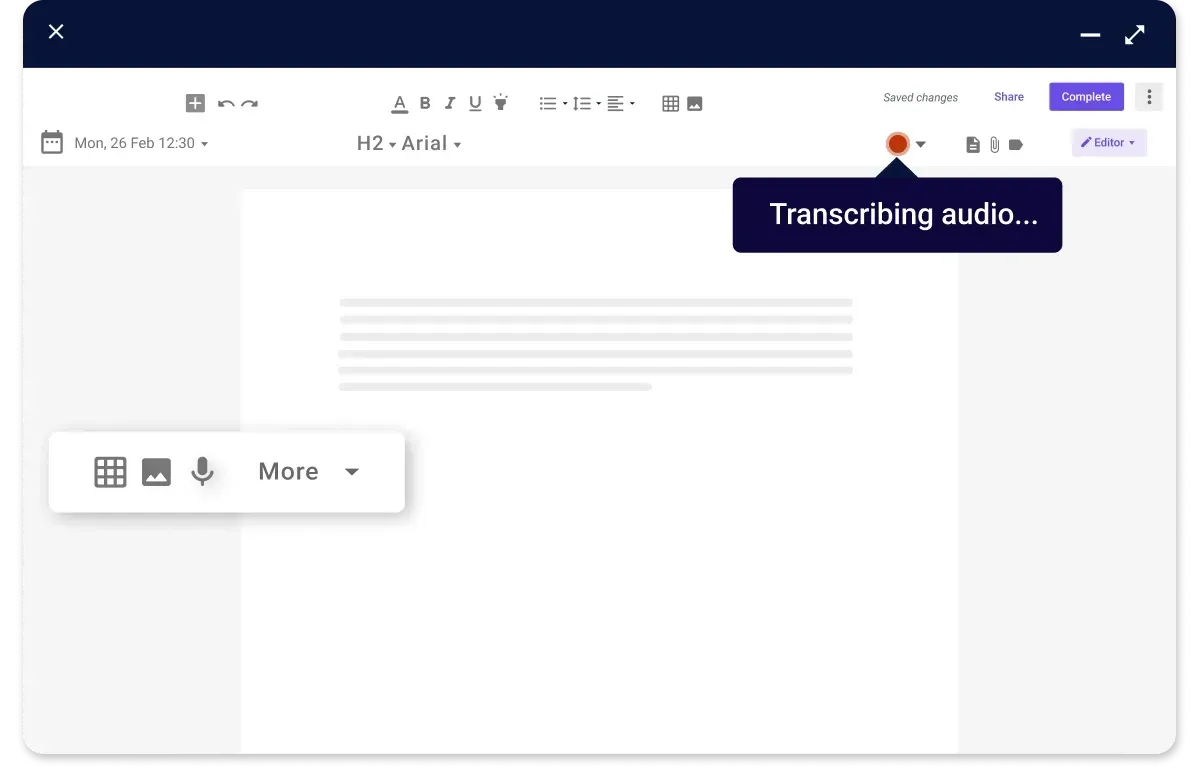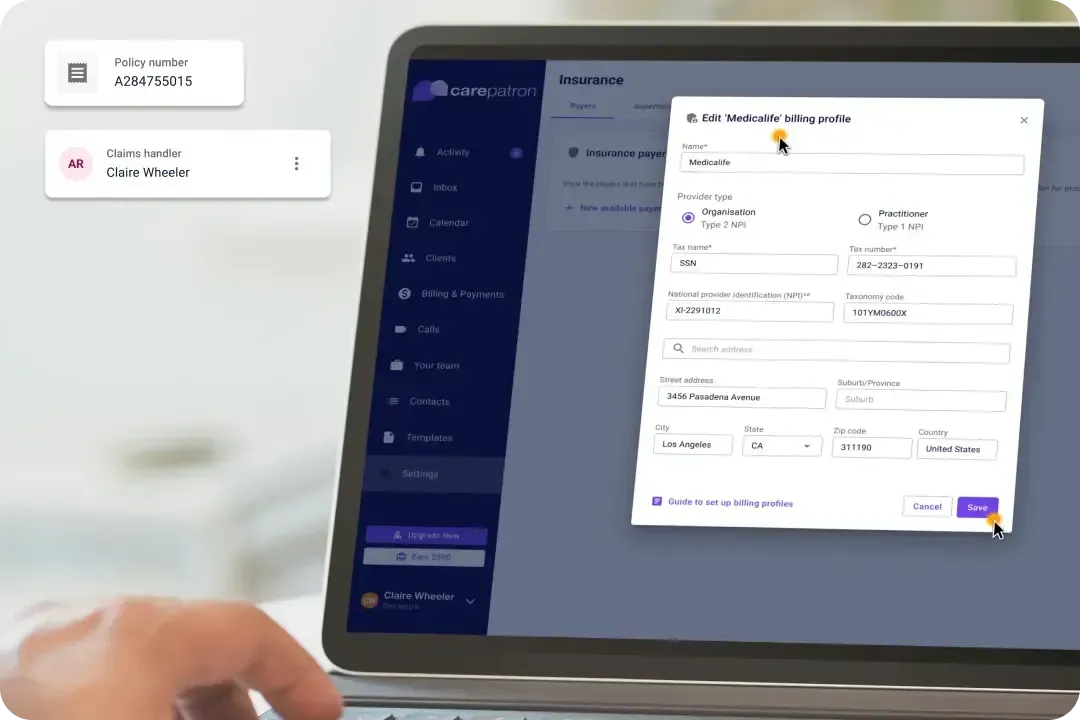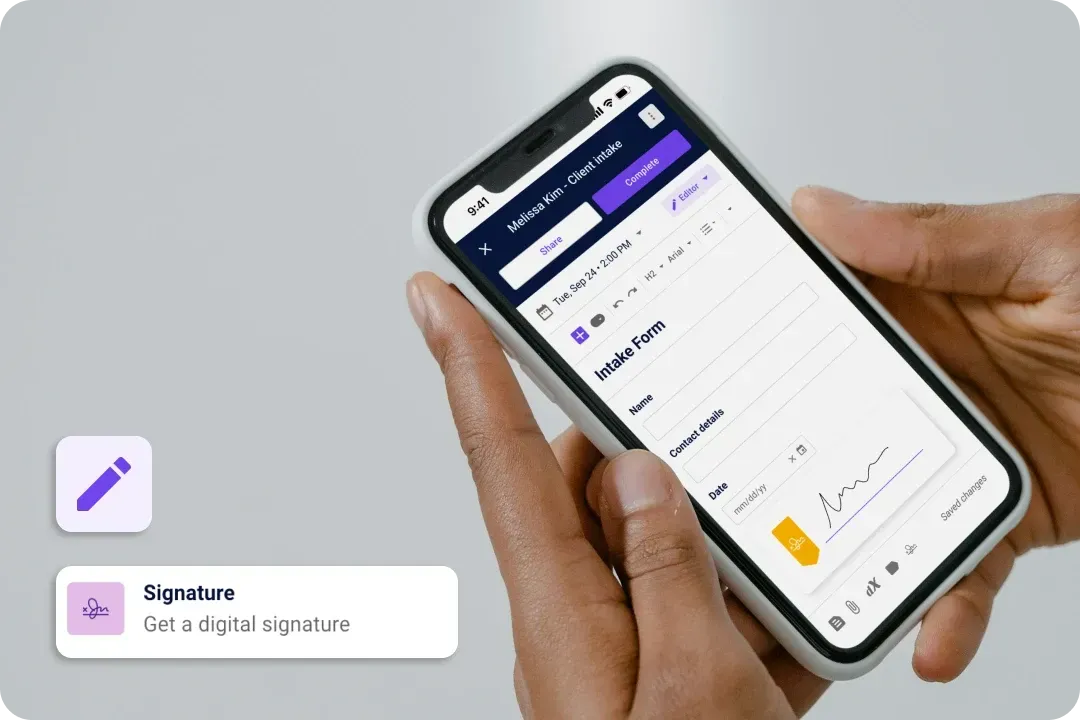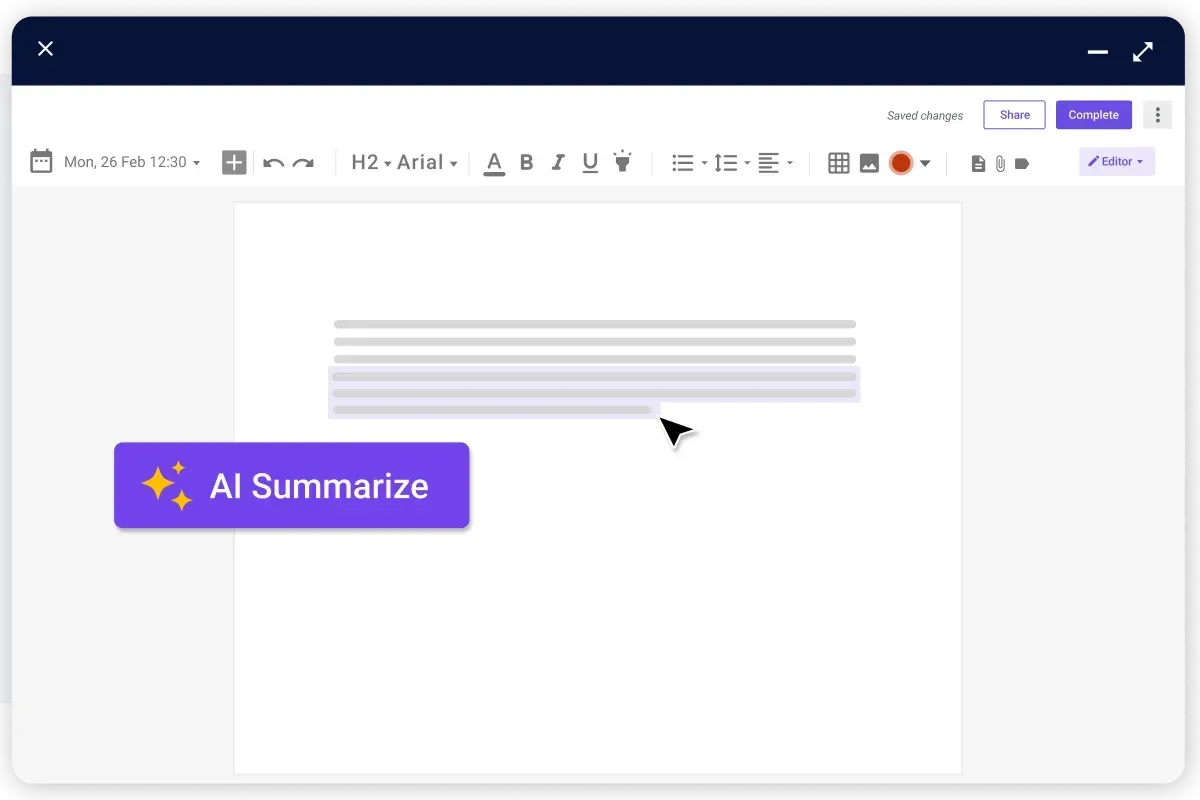Take control of your schedule
Introducing Carepatron’s free medical scheduling software. You no longer have to manually manage your appointments. We take care of availability, booking times, patient preferences, and automated reminders … all while ensuring the schedule suits you! Learn more below.
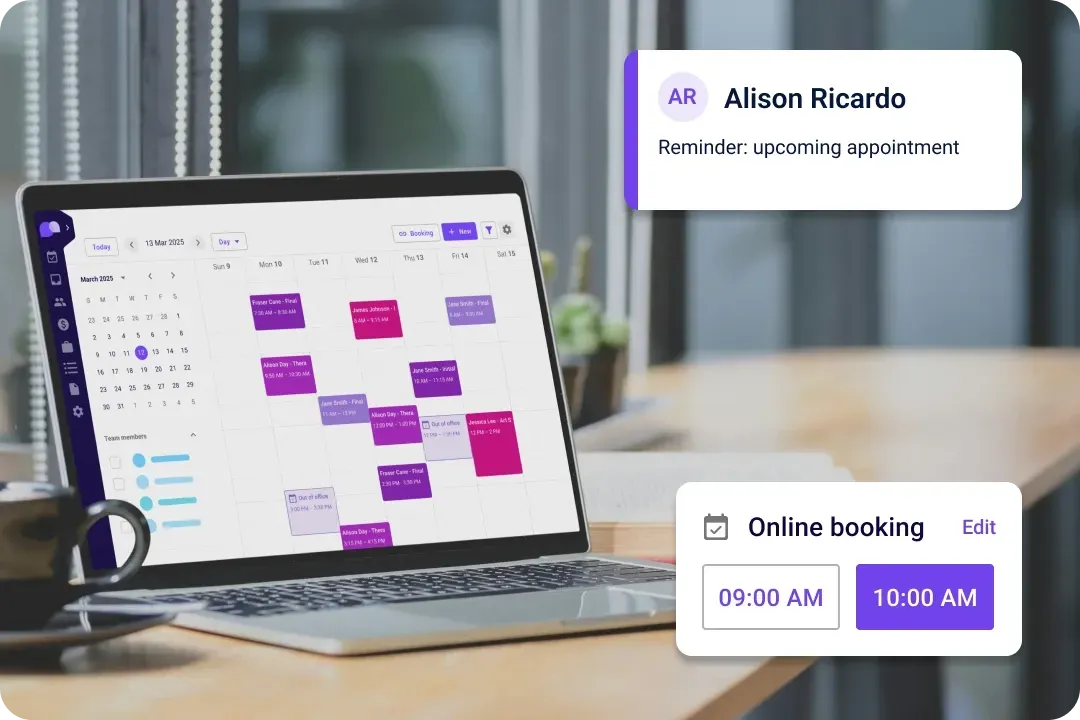
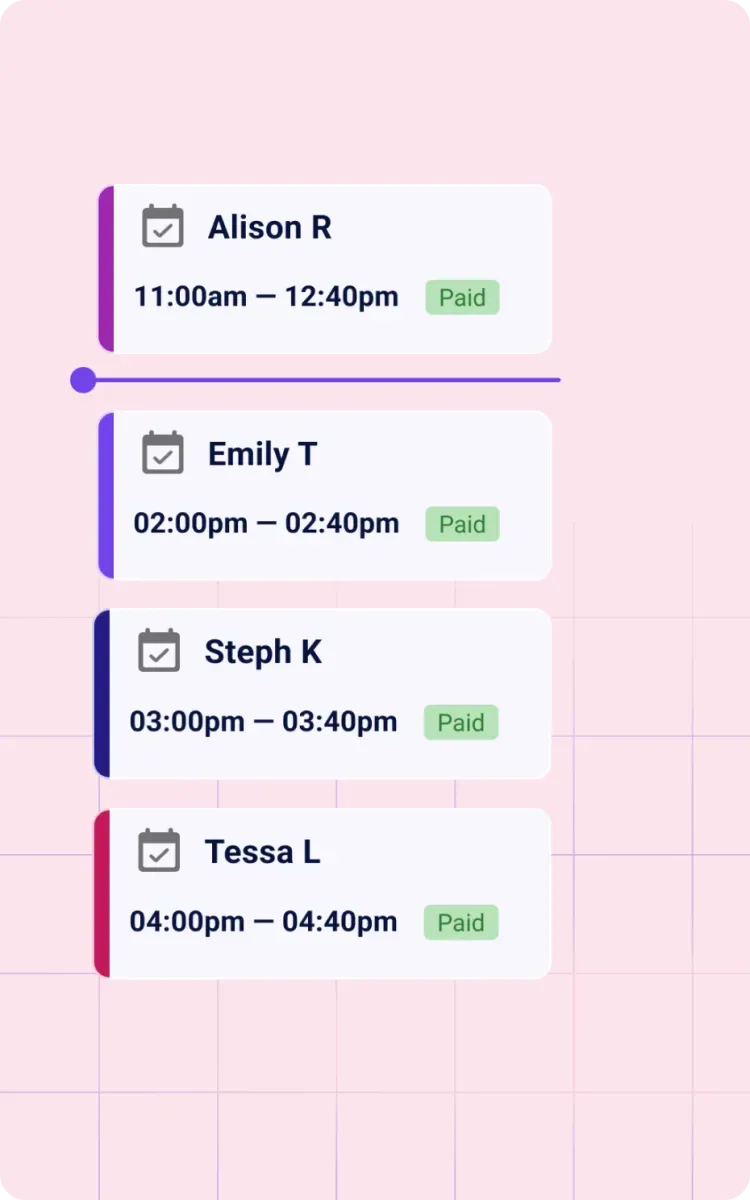
Improve your schedule with our free appointment scheduler
Our online booking tool does so much more than just schedule appointments. You'll love how seamlessly it integrates with your existing systems, making it super convenient to handle all your scheduling and online booking needs in one place. Download our free patient scheduling software, free and fit for your needs.

Streamlined synchronization
Our tool effortlessly syncs with your calendar, ensuring all your appointments stay up-to-date in real time. Say goodbye to double bookings and missed meetings! Improve your scheduling accuracy and reduce confusion.

Resource optimization
Our free healthcare scheduling software enables you to manage your resources and offer time slots that align with your team's availability. You can focus on delivering exceptional services and enhancing workforce efficiency.

Customizable reminders
Wave goodbye to no-shows! Personalize automated reminder emails and SMS messages for clients, freeing up time for follow-ups and coordination. With customizable reminders, ensure all parties are kept informed.
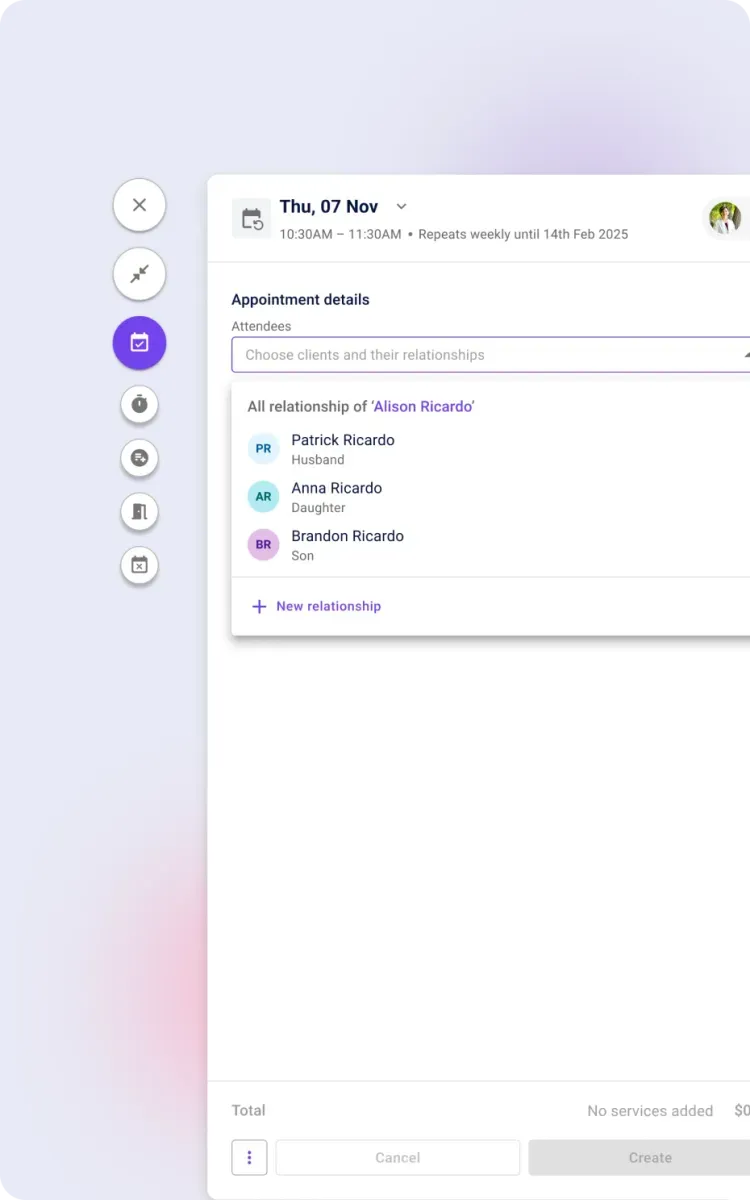
Benefits of Carepatron’s free medical appointment scheduling software
With Carepatron's free healthcare scheduling software systems, you get to enjoy a wide range of benefits. It helps you manage appointments more efficiently, allocate resources effectively, and reduce patient wait times.

Boosted patient happiness
Patients love the ease of booking online, leading to happier experiences with your healthcare service. Save time for both your staff and the patient by using our booking system.

Enhanced health results
Swift scheduling means prompt care, potentially enhancing health outcomes with timely treatment and follow-ups. Carepatron ’s system also automates appointment reminders and scheduling confirmations.

Optimized revenue
Fill slots effectively, cut down on no-shows with reminders, and watch your practice thrive financially while saving resources. Our online booking system maximizes your revenue by filling open appointments.
Trusted by more than 100,000 practitioners

"It’s so easy to connect with my staff"
CLAIRE, PHYSICAL THERAPIST

"Carepatron saves me 2 hours everyday"
AEGEUS L, HEALTH COACH

"My team loves how simple it is to use"
ANDREA MAGNUS, PRACTICE MANAGER
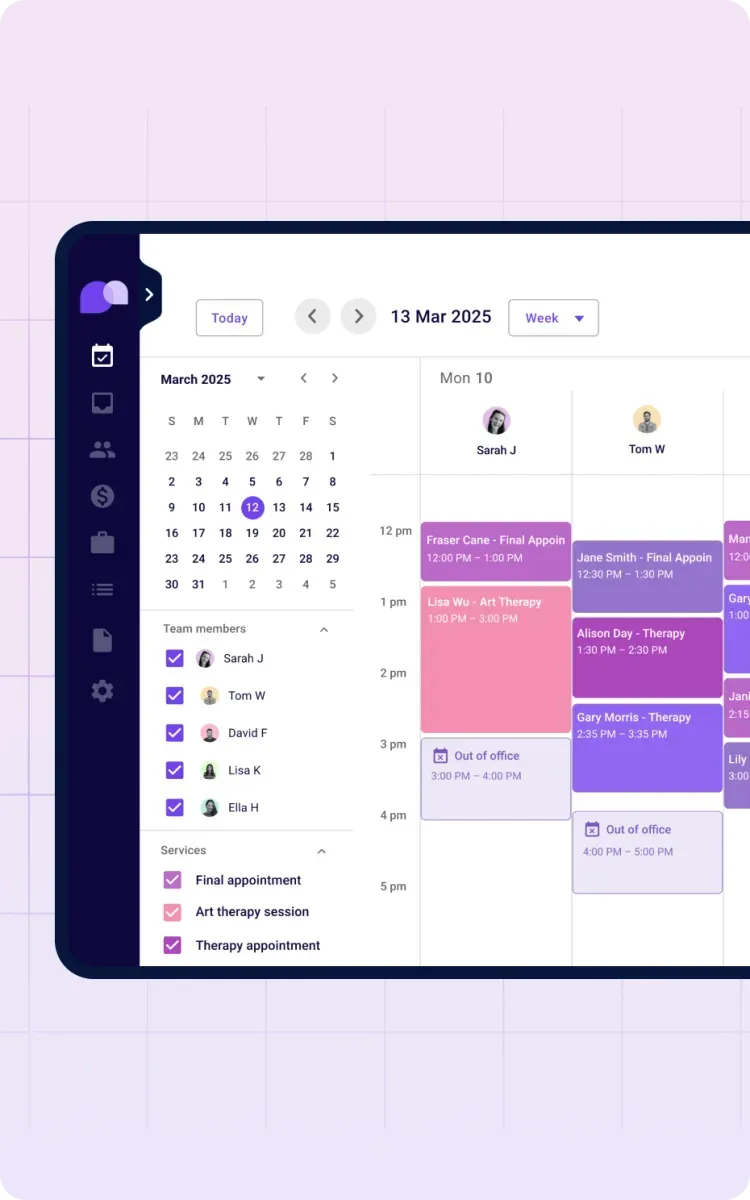
The free patient scheduling software for all practitioners
Whether you're a physical therapist helping patients regain mobility, a dentist ensuring healthy smiles, a psychiatrist providing mental health support, or even managing a multi-specialty hospital, our software is designed to streamline and simplify your scheduling process.

Versatile physical therapist scheduling
Tailor appointment types and durations to align with various therapy sessions, ensuring that patients receive personalized care for their rehabilitation requirements. Guarantee that each individual receives the optimal amount of time and attention.

Dental appointments, organized
Revamp your dental care with organized scheduling for check-ups, cleanings, and procedures. We aim to improve scheduling methods, making sure appointments are always on time and efficiently.

Mental health support timing
Offer discreet and convenient booking choices for therapy and counseling sessions, prioritizing patient privacy to foster consistent participation. Your clients can view open sessions and choose their desired time slot.

Hospital-wide coordination
Streamline appointments across various departments to enhance communication between teams and optimize patient flow within intricate healthcare facilities. Use our system to create a seamless appointment process for patients and healthcare professionals.
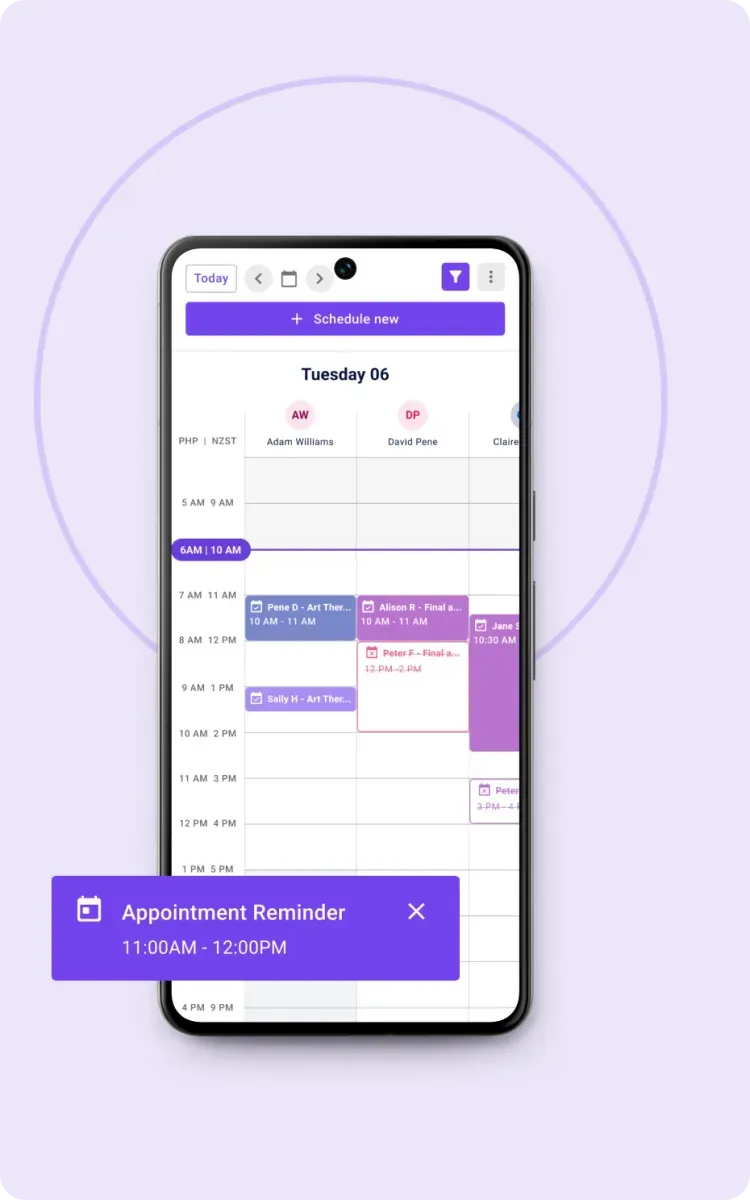
Reduce no-shows with a free appointment booking app
Managing multiple appointments, tracking patient attendance, and handling cancellations can be overwhelming for any practice. But with Carepatron’s scheduling software, you can easily stay on top of your schedule.

Stay on top with automated reminders
Our patient scheduling software ensures patients never miss appointments by sending timely reminders via SMS or email, cutting down on no-shows. Elevate patients' experience with automated appointment reminders, confirmations, and follow-ups.

Easy rescheduling
Say goodbye to no-shows! Patients can effortlessly reschedule appointments using our intuitive interface, making the most of your time. You can also make changes to appointments based on availability, ensuring an efficient scheduling process.

Empower patients with engagement tools
From online self-scheduling to telehealth, our software gives patients flexible options to suit their busy lives, reducing missed appointments. Use our handy patient scheduling software tools to better engage with your patients.

Customized services and notifications
Our platform allows you to tailor your appointment options and reminders according to your patients' needs, increasing attendance rates. With Carepatron, you can customize your services and notifications.
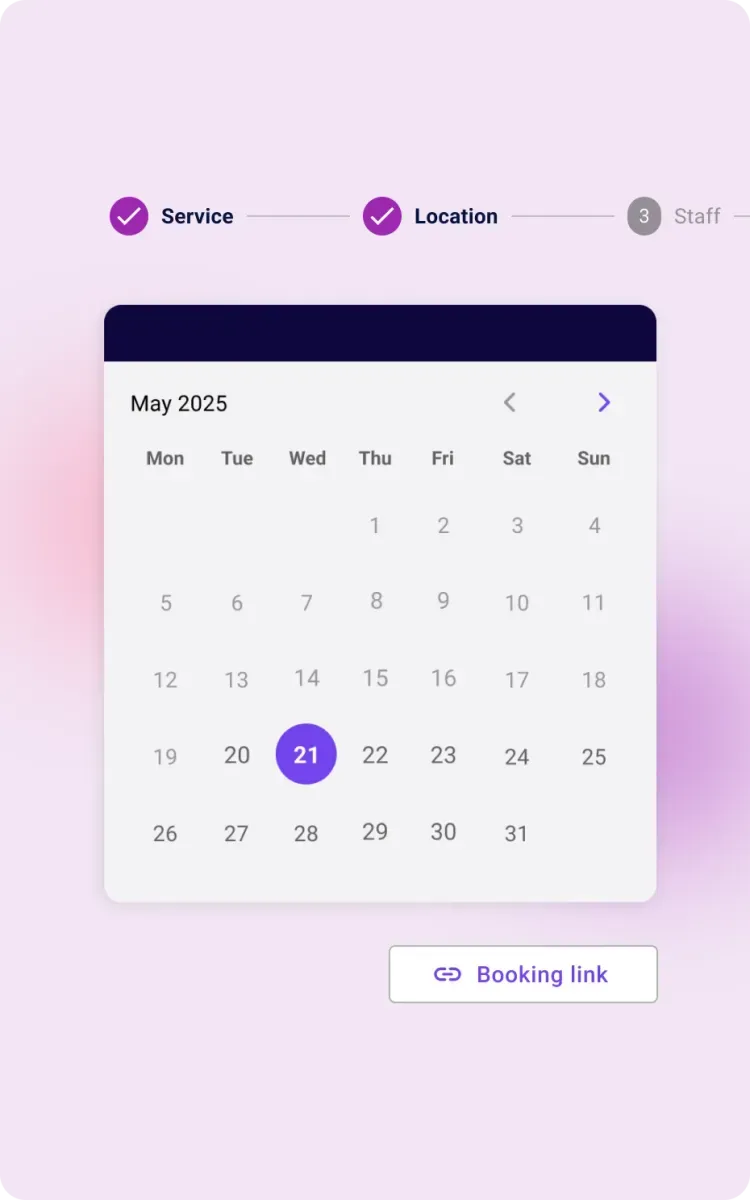
Setting up online booking
Setting up online booking with our free healthcare scheduling software system is a piece of cake. Our software makes it easy for patients to book appointments online while also streamlining the process for you.

Set your available appointments
Register for an account or log in to your Carepatron account. Then, navigate to the settings section to customize your available hours, appointment types, and buffer times between appointments.

Include your services
List down the services you offer, along with their respective durations and prices. Make sure to be specific and detailed so your clients know exactly what to expect when they book an appointment.

Connect with your calendar
Sync your personal or work calendar with our platform to avoid double-booking and ensure your availability is always up-to-date. Our tools make it easy to manage your appointments and view them in one centralized location.

Share booking links with patients
Once your setup is complete, you'll receive a unique booking link. Share it with your patients via email, on your website, or through social media. This allows them to easily schedule appointments with you without having to go through the hassle of calling or emailing.
Frequently asked questions
EHR and practice management software
Get started for free
*No credit card required
Free
$0/usd
Unlimited clients
Telehealth
1GB of storage
Client portal text
Automated billing and online payments






